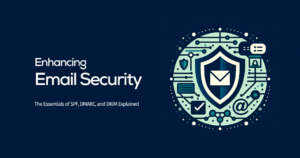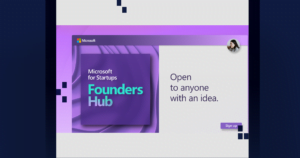According to a Statista report, About 15 to 16 percent stated their companies’ workforce worked remotely prior to the pandemic, and as of late 2020, 34 percent of respondents expected the workforce to be working remotely permanently, even after the pandemic has passed. In March 2021, 70 percent of respondents state that they are currently working remotely. This means that companies must provide their employees with technological equipment to perform their jobs from different locations.
The Need for Cloud Security
Businesses embraced these new platforms to adapt to changes brought about by the COVID-19 pandemic. They achieved this with reliable IT and cybersecurity to protect their systems. Today, businesses face frequent supply chain shocks and a shortage of talent. There is a need to protect businesses from attacks such as ransomware. Business managers have to stay ahead with stricter compliance requirements continuously. These occur amidst searching for the right technological solutions to offer a transformational advantage.
The use of mobile, cloud and edge platforms offers unprecedented business innovation, resilience, and adaptation in the fast-paced technological world. With these broad mixes of technologies comes incredibly complex compliance criteria to follow. The security operation centre needs to keep pace to safeguard infrastructure, data, devices, apps, identities, and more. They also need to update their skills to match the evolving cyber risks with a new set of devices, users, and destinations. The most reliable solutions available today to cater to these issues are Microsoft 365 and Azure.
Delivering the Future of Multi-Cloud Cybersecurity
Flexera 2021 State of the Cloud Report found that 92% of respondents use the multi-cloud model. They rely on infrastructure and apps from multiple cloud providers. In another Microsoft survey, about 73% of respondents feel it is challenging to manage multi-cloud environments. Organizations looking to embrace multi-cloud strategies entirely need to reduce the complexity of their security solutions to deliver comprehensive protection. Luckily, Microsoft got you covered. Microsoft users now have access to diverse cloud systems that are native capabilities of Microsoft Defender for Cloud to the GCP.
GCP, or Google Cloud Platform, is the only cloud provider with multi-cloud protection over Microsoft’s top three cloud platforms: Amazon Web Services (AWS), Microsoft Azure, and now Google Cloud Platform (GCP). Users have access to the Cloud Workload Protection and Cloud Security Posture Management provided by Microsoft Defender for Cloud. The solution identifies weak configuration points across the three providers to ensure you have a strong overall security posture in the cloud and across other workloads —all from a single platform.
Strengthening Zero Trust With Identity Security From CloudKnox
Even with all the innovation and changes, security and compliance issues begin by managing identity. Company identities refer to the foundational pieces that make it possible to deliver services, data, and apps where they are needed. Devices, platforms, services, users, and locations multiply drastically in a multi-cloud world. It is essential to secure dynamic identities and permissions wherever they are. It works as another core pillar for protecting your multi-cloud environment.
One key point that most companies lack is proper visibility and control over the dynamic identities and permissions. Microsoft acquired CloudKnox Security to address the same issue. CloudKnox is an industry leader in Cloud Infrastructure Entitlement Management (CIEM). It enables Microsoft to accelerate its ability to allow users to manage permissions on their multi-cloud environments and strengthen Zero Trust security posture.
Comprehensive Multicloud Protection by Azure AD
The cloud landscape has various threats as attacks come from outside or inside the business. Designing a comprehensive solution with organized security, identity, compliance, privacy, and endpoint management is essential. It works as an interdependent whole with extended protection from clouds and platforms.
Microsoft recently released new updates across their different portfolios to enable you to get better protection for your business. They are:
- Securing your business workload identities with Azure AD: Azure AD has been extended beyond its capabilities to protect user identities while safeguarding workload identities for services and apps. More customers are, indeed, moving workloads into the cloud and developing cloud-native applications.
- Enjoy secure payment processing on the cloud using Azure payment HSM: This new service called Azure Payment HSM allows payment card issuers, payments processors, and networks to perform transactions securely in the cloud. It has the highest protection levels for your customer pins and cryptographic keys for making secure payment transactions.
What’s Next for Your Multi-Cloud Cybersecurity?
Cyber risks are inevitable and dynamic, but more businesses invest in integrated, comprehensive, and cloud-powered defences that use automation to mitigate risks. It is essential to empower your organisation and remain fearless with your digital transformation to continue innovation.
Microsoft has some of the best solutions that work seamlessly across various cloud platforms and extend to clouds and apps so that you enjoy a secure digital estate. Multi-cloud is still a significant area for businesses to focus on going forward.
Equally important, you can protect your data from Cyber threats to Azure AD and Office 365 by:
- Back up company data: Back up your data regularly to enable you to reload and resume business if you suffer ransomware hacks.
- Use Multi-factor Authentication: Most consumers find multi-factor authentication (MFA) annoying. When you require multiple devices to access one account, it can be a lot of work. However, its implementation significantly reduces any risk of unauthorized access.
- Offer employee training: Employees are the weakest link in your company’s cybersecurity chain when untrained. Studies suggest employee negligence is the leading risk companies face when fighting cybersecurity threats. Proper training will eliminate or reduce this risk.
How is your organisation’s
cybersecurity posture?
Vividblock’s security offerings include implementing and configuring Microsoft Sentinel, Defender for Cloud, and Azure Arc. These defend every corner of your IT environment with practices firmly rooted in Zero Trust principles. Request a quote today to understand how you can best defend your hybrid and multi-cloud environments.
Contact one of our experts on 0330 229 0041 or submit an online enquiry.


